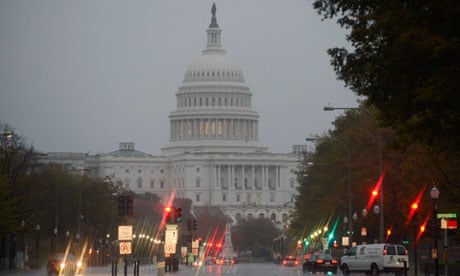On the night of March 10th to the morning of March 11th, 30 US Senators stayed up all night speaking about climate change for 15 hours. The Up4Climate event was the first hosted by the Senate Climate Action Task Force. A video of the full session can be viewed courtesy of C-SPAN2, and is also searchable by speaker and keyword.
The event was encouraging not just because 30 percent of the members of the US Senate were willing to devote their personal time to discuss this critical subject, but also because they displayed a strong understanding of climate change and its impacts. Senator Bernie Sanders (I-VT) invoked the 97 percent expert consensus on human caused global warming from the study my colleagues and I published last year.
Senator Jeff Merkeley (D-OR) spoke about pine beetle population explosions decimating Oregon forests. This is a result of warmer winters and thus fewer extreme cold events that normally act to limit pine beetle populations.
Senator Chris Coons (D-DE) spoke about the often-overlooked threat of ocean acidification. Rising levels of carbon dioxide in the atmosphere don't just warm the planet; they also form carbonic acid in ocean waters, reducing their pH level. This has significant adverse impacts on coral reefs (for example, The Great Barrier Reef) and other marine ecosystems.
Senator Brian Schatz (D-HI) spoke about the importance of viewing climate change in terms of risk management, as illustrated in the cartoon below.

Unfortunately, the only Republican to speak at the event was Senator James Inhofe (R-OK), and his comments were generally limited to "zingers" about the Senate Democrats having "an audience of themselves" during the event. Such is the state of American politics that one party takes climate change very seriously and the other views it as a punch line.
Nevertheless, the night was a positive sign in that so many US Senators were willing to speak about the importance of climate change. The last serious effort was in 2009 when the American Clean Energy and Security Act was passed by the House of Representatives, but blocked by a filibuster in the Senate that prevented it from coming up for a majority vote. The bill had about 80–90 percent support among Democrat members of Congress, but only 0–5 percent support among Republican members of Congress. Since then, efforts to pass climate legislation have stalled in US Congress, and many Democrats have seemed unwilling to discuss the subject, perhaps seeing it as a losing issue in elections.
The fact that these 30 Senators were willing to hold this high profile climate event and display their understanding of the science and importance of addressing climate change suggests that they now view it as an issue that will help them win elections. As Senator Barbara Boxer (D-CA) wrote of the event, it showed,
1) Climate change is real, human-caused, and contrarians are losing political ground.
2) Every state in the U.S. is already experiencing the effects of climate change.
3) The solutions to climate change are good for our economy and good for our country.
4) We cannot wait for countries like China to lead.
Although there is still close to zero support for climate legislation amongst conservative members of Congress, the Up4Climate event and President Obama's significant action from the executive branch are good signs that the USA may be moving in the direction of addressing climate change. Additionally, a growing number of American conservatives are beginning to support climate policy, in particular a revenue-neutral carbon tax with growing grassroots support thanks to groups like Citizens Climate Lobby.
The tide may be turning.

Comments (…)
Sign in or create your Guardian account to join the discussion